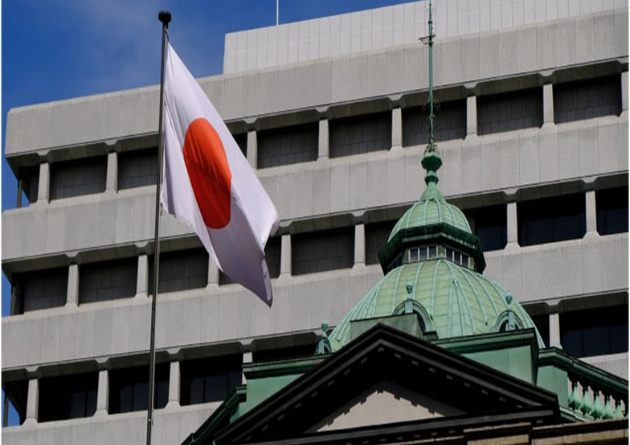Japan's BOJ Faces Dilemmas Amidst Inflation Pressures
- rabeelrana

As the U.S. approaches the end of its aggressive interest rate hikes, Japan’s central bank finds itself at a crucial juncture this week, contemplating whether to take further steps in phasing out its contentious yield control programme. While inflation in Japan has remained above the Bank of Japan’s (BOJ) 2 per cent target for over a year, Governor Kazuo Ueda remains cautious, pledging to maintain ultra-loose policies until he is confident that the economy can withstand global headwinds and support sustainable wage increases for firms in the coming year. With the two-day meeting concluding on Friday, the BOJ is expected to retain its yield curve control (YCC) targets, but discussions about potential minor tweaks to the policy are underway to strike the right balance between benefits and costs.
The Bank of Japan (BOJ) currently maintains its Yield Curve Control (YCC) targets at -0.1% for short-term interest rates and 0% for the 10-year bond yield, with a widened allowance band of 0.5%. This adjustment in December reduced the need for massive bond purchases to defend the yield ceiling, while negative short-term rates mitigate potential borrowing cost increases. The BOJ faces the challenge of balancing economic growth and managing inflation pressures. Prolonged deflation history makes policymakers cautious about premature tightening, as it may impact positive changes in corporate price and wage-setting behavior. Internally, the BOJ’s board members are divided over stimulus timing. Some call for an early tweak to the YCC, while others stress the importance of maintaining the current level of stimulus. Recent policy meeting minutes highlight these differing viewpoints. Pressure is mounting on the BOJ to address the issue of creeping inflation. The International Monetary Fund (IMF) recently urged the central bank to prepare for future tightening measures, signaling the urgency of the situation. Additionally, Japan’s top financial diplomat has suggested that the BOJ may need to adjust its approach to monetary stimulus due to “signs of change” in corporate behavior. Moreover The BOJ’s substantial bond buying has led to thin market liquidity, while the yen’s decline, fueled by ultra-low Japanese rates, has driven up import costs. These factors add to the complexity of the situation and warrant careful consideration by the central bank. In other news,Former BOJ board member Takahide Kiuchi anticipates that the central bank will eventually modify its YCC approach but is likely to maintain the status quo during the upcoming meeting. He believes that inflation trends and the prevailing market environment will play a pivotal role in determining the BOJ’s future policy decisions.
Japan’s central bank faces a delicate decision regarding its yield control programme amid sustained inflation and external economic pressures. The BOJ must carefully weigh the benefits and costs of its current policy and consider the potential implications of any tweaks to the YCC. Striking the right balance is crucial for achieving sustained economic growth and stability in Japan’s monetary landscape. As global economic conditions evolve, the BOJ’s actions will undoubtedly play a significant role in shaping Japan’s economic trajectory in the coming months.
